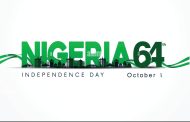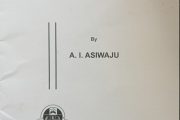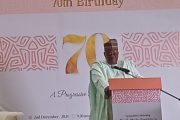
Gen Danjuma commissioning a Kwararafa University facility along with Gov Sarius Ishaku of Taraba State
12 – year old Kwararafa University, Wukari is declaring an identity of commitment to the development needs of the community. Theoretically, universities are supposed to be their own universe, existing to produce knowledge for knowledge sake. Contemporary capitalism has checkmated that classical notion of the university since, compelling universities to be relevant to big corporations in terms of researches funded by these corporations and even the kind of courses they prefer. In Nigeria, there is a different tradition of influence on what universities should do. The University of Ibadan, for instance, is, by now, expected to train only graduate students if the wish of the Federal Government had been met. It would be surprising if Ibadan is anywhere in that direction and for reasons that only the pattern and dynamics of demand for education might explain.
In this context, it is interesting finding a medium sized Nigerian university defining itself in terms of response to community needs. This might be understandable in terms of it being about the only community promoted university in Nigeria at the moment. However, comparative data shows another reason which makes the move more interesting. In an interview with Intervention and published June 25th, 2017, Georges Nzongola Ntalaja, Professor of African and Global Studies at the University of North Carolina spoke of the organisation of universities in the United States in terms of the university system being about real learning in the humanities and sciences while the state owned university system emphasises practical knowledge – engineering, agriculture, public works, train people who are going to develop the new seeds, the new techniques and would give that to the counties.
The possible implication is that Kwararafa University might be operationalising something more novel than unreasoned response to the sensibility of the ownership. That makes it an interesting place to watch in terms of the creativity in managing the universities that Nigeria may hardly score high due mostly to top heavy bureaucratic structures, from overloaded university councils to diminished funding to a deadening uniformity in course offering.
In the current statement by Mister Joshua Sangari, the Registrar, declaring open the admission process for the impending session, its undergraduate offerings are not too different from the typical Nigerian university of today although an applied sense accompany them in the titles. Thus there is the College of Management and Social Sciences where Accounting, Economics, Mass Communication, Sociology, Political Science and International Relations, Public Administration, Business Administration, Criminology and Security Studies and Geography are co-existing under one roof.

Prof Yakubu Ochefu, Historian and VC of Kwararafa University, Wukari
Two other colleges make up the system at the moment. It is likely that subsequent additions would resolve the curious development whereby a university promoted by a community in transition would not privilege the humanities and, by implication, the culturally humanising impact of courses within it, all of which have that as their core: Literature, Philosophy, Psychology and some might add Anthropology although it is submerged in Sociology even as it retains a place because of the vigour it offers in terms of methodology. It is, indeed, curious that a university currently run by Professor Yakubu Ochefu, one of Nigeria’s leading Historians, does not offer a degree in the subject. Well, the university is just 12 years old.
On a completely different note, it was interesting learning from the statement that there has since come into existence the Joint Universities Preliminary Examination Board, (JUPEB), similar in structure to the IJMB which Ahmadu Bello University, Zaria used to administer. Without it, many of the people who acquired university education in Nigeria today would not have had it. Yet, the government woke up one day and yielded to pressures for streamlining and with it ‘killed’ the IJMB. Now, IJMB has resurrected in JUPEB.
The dilapidated state of schools across Nigeria today makes a very strong case for strengthening arrangements such as JUPEB because it provides a safe landing for most secondary school products who attended schools from which even a genius can hardly produce more than two credits at a sitting. And this is the story in most of the states, especially in the north! A one year arrangement becomes a safe landing for such category of secondary school products who though are not yet undergraduates but no longer have to wear uniforms, now learning under the university atmosphere, better teachers, with the prospects of all of these acting as incentives for great performance. Kwararafa University is among the 30 universities that subscribe to this arrangement.
From the distance, Kwararafa University appears keen in sending ‘catch me if you can’ signals.




























